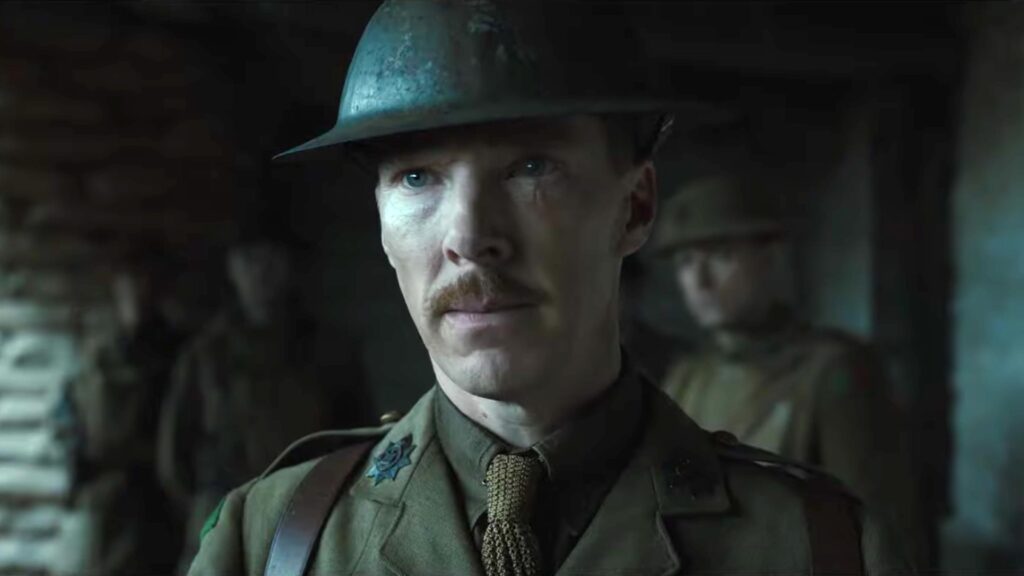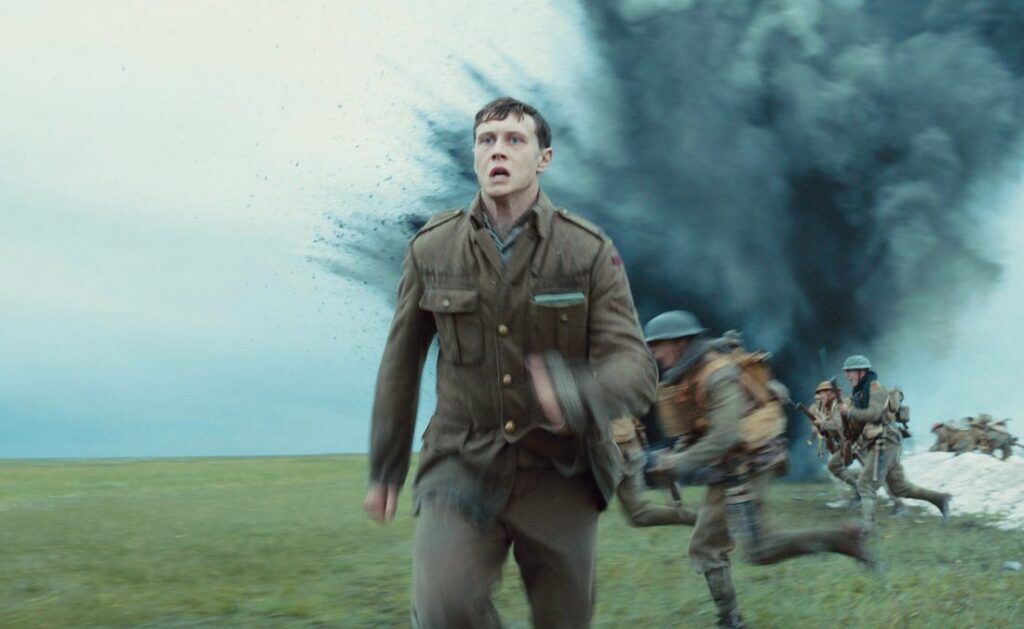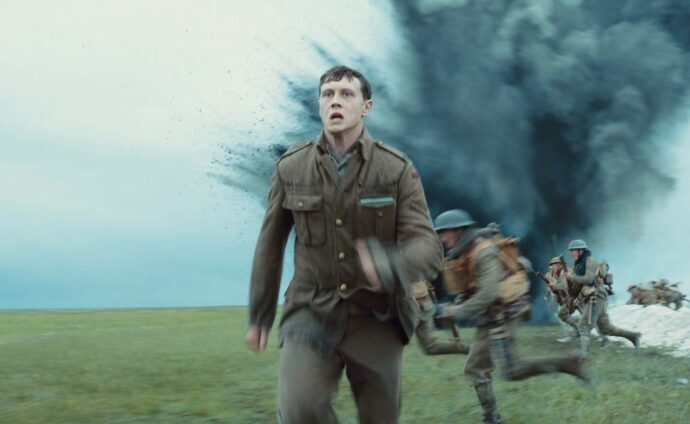With its many accolades, especially at the Golden Globes, there’s been a massive surge in expectations for Sam Mendes’ 1917. This World War I drama puts the audience into the thick of the war and doesn’t stop for nothing. Using a “one-shot” format to tell the story of two soldiers sent to call off an attack on the British army, Mendes creates an immersive, emotional, and personal journey that shows what these soldiers went through to great effect.
One Long Shot
Perhaps the film’s biggest claim to fame is its “one-shot” appearance. Similar to Rope or Birdman, the film uses several takes and set-ups to give the appearance everything is in one continuous shot. Basically, it looks like the viewer is watching events occur in real time, and they’re part of the story. It sounds like a gimmick, but Mendes makes it anything but.
There’s a sense of dread throughout each sequence, as the camera moves like it’s someone’s POV. Every gunshot, explosion and trek feels more pronounced through this format, feeling as close to real life as possible. The film also keeps a tight pace that makes the story feel more intense and more immersive.

To say nothing of the production design and cinematography. The production from Skyfall designer Dennis Gassner looks like a war zone and history book come to life. Dead bodies, used ammo, even waste. There’s a grit and grime in the design that’s realistic and believable. It really shows the aftermath and destruction war has on the world, further heightening the situation the heroes go through.
The cinematography is also incredible. The famed Roger Deakins brings gorgeous lighting and color in each frame, elevating the film as more epic and more cinematic. One sequence at night in particular is utterly jaw-dropping.
The Young Stars
But while the technical prowess has garnered deserved praise, the two aspects that make the film so strong are its two leads. Played by relative unknowns Dean-Charles Chapman and George MacKay, these two sell the film and keep folks invested. They have a genuine friendship and their chemistry makes them endearing to follow. And when it comes to the emotion, they bring strong pathos that would not have made the film as good as it is.

MacKay in particular really shines. He is a bit of a blank slate, but Mendes still knows how to use his talents. There’s a sense of innocence and youth to him that shows the horrors of the Great War while also giving us someone to root for and relate to. MacKay has one great moment with a French citizen in particular that really highlights him as an actor to look out for.
To Wrap Up…
Perhaps the one thing that really shows what makes 1917 so special is its ending. Not necessarily the final footage, but the dedication that plays before the credits. Without spoiling it, that dedication really does show what this movie is really about. It’s a personal story for Sam Mendes, and a tribute to the lives lost in a war that sadly doesn’t get much attention anymore. 1917 works as both a visceral depiction of war, and as a touching celebration to the important people.
Read my review for fellow Best Picture nominee Jojo Rabbit here
